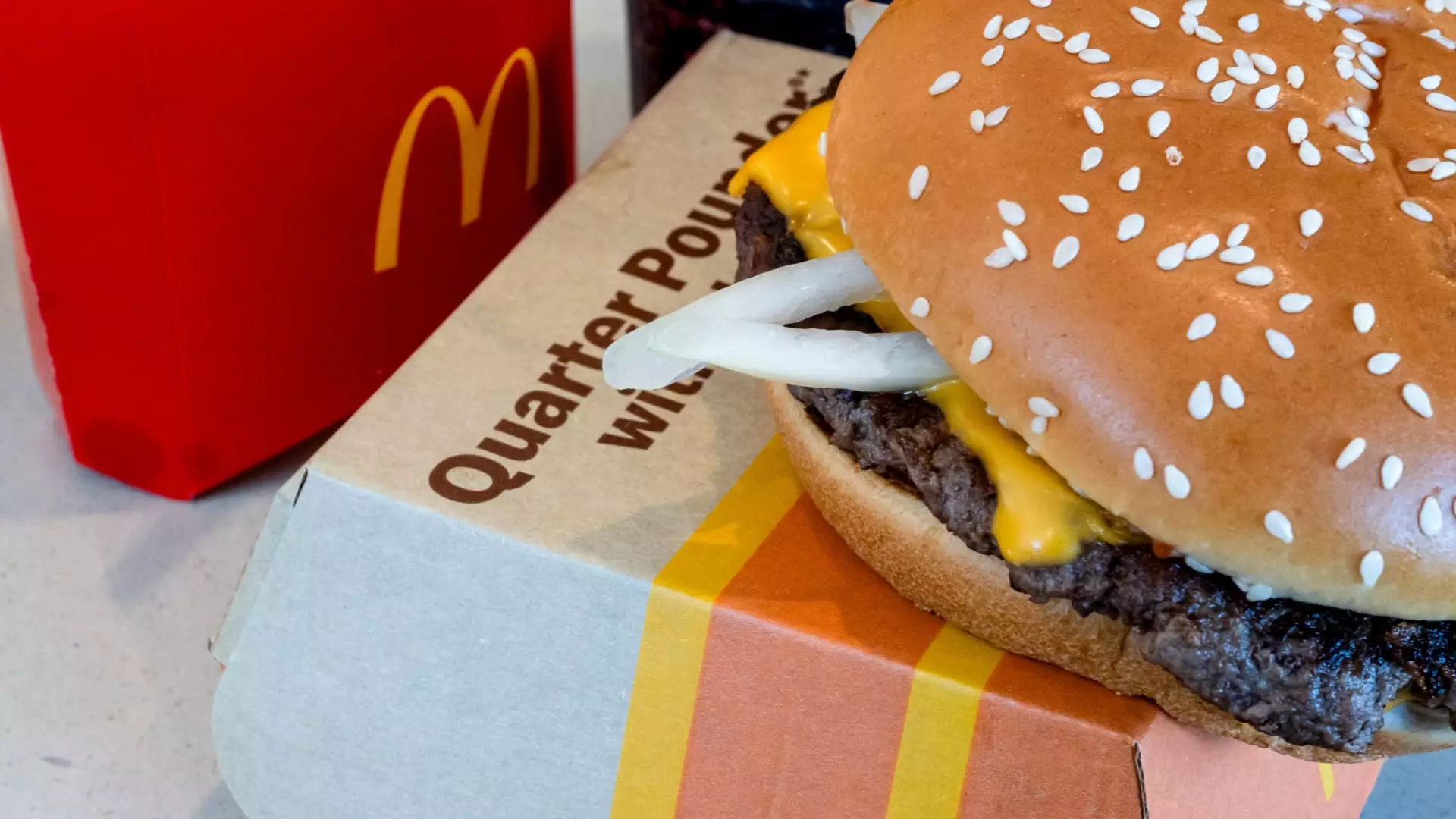As the Centers for Disease Control and Prevention (CDC) sheds light on a significant E. coli outbreak linked to McDonald’s popular Quarter Pounders, the complexities surrounding food safety, corporate response, and consumer trust come to the forefront. This incident has resulted in 75 reported cases across 13 states, with 22 hospitalizations and one death. While figures have captured media attention, the grave implications for public health and McDonald’s brand image merit a closer examination.
The CDC’s investigation reveals a disturbing trend: while some cases were reported, the actual number of infected individuals could be substantially higher. Many people infected with E. coli do not undergo testing, as they may exhibit mild symptoms or recover without medical intervention. This lack of data complicates the outbreak’s overall scope and public health responses. Interestingly, all interviewed patients who had fallen ill had consumed food from McDonald’s, further solidifying the fast-food chain’s connection to the outbreak.
Among the individuals affected range from teenagers to senior citizens, highlighting that foodborne illnesses can jeopardize the health of vulnerable groups across age demographics. The potential for severe complications—such as hemolytic uremic syndrome, which can lead to kidney failure—underscores the critical nature of responding to this emergency swiftly and effectively.
Following the outbreak’s announcement, McDonald’s issued a cautious response. They swiftly began removing the suspected contaminated ingredient, slivered onions, and halted its distribution in afflicted states. The company’s decision to act promptly serves as a double-edged sword: while it implies accountability and a commitment to consumer safety, it also reveals the potential weaknesses in their supply chain management.
Taylor Farms, the supplier for the onions, issued a recall for four products linked to the outbreak, indicating a broader issue with food safety practices in sourcing and supply chains. This incident highlights the interconnectedness of food supply networks and raises questions about regulatory measures in place to mitigate such risks. The situation not only compromised immediate sales in affected regions but could also lead to a long-term reevaluation of food sourcing practices across the fast-food industry.
Impact on McDonald’s Brand
The financial ramifications for McDonald’s have already begun surfacing, as indicated by a noticeable dip in their stock prices—down 6% since the outbreak was first reported. This rapid decline raises concerns about consumer confidence, particularly in light of previous E. coli incidents linked to other fast-food chains. Even though it may seem premature to predict a lasting impact on the brand, the fast-food sector is especially susceptible to public perception, which can shift dramatically post-outbreak.
Despite these challenges, experts have suggested that unless the outbreak escalates or new developments emerge, McDonald’s brand might endure minimal long-term damage in comparison to similar past events. However, the company cannot afford to adopt a complacent attitude. Ensuring food safety, reinforcing customer trust, and putting proactive health measures in place are crucial elements that McDonald’s must prioritize moving forward.
Looking Ahead: The Bigger Picture
In the wake of the outbreak, other fast-food chains like Burger King, Pizza Hut, KFC, and Taco Bell have begun removing onions in select locations as a precautionary measure. This collective response illustrates an awareness of inter-chain dynamics and serves as a reminder that the industry must remain vigilant in addressing potential health threats.
As McDonald’s prepares for its upcoming earnings report, the potential repercussions of the outbreak will be closely monitored by stakeholders. The company’s attempt to reassure customers of its food safety protocol and commitment to consumer health is crucial in restoring trust. Consumers are becoming increasingly sensitive to food safety issues, which means that transparency will be paramount moving forward.
The E. coli outbreak linked to McDonald’s Quarter Pounders is more than just a series of health incidents; it is a critical moment for the fast-food giant to evaluate its practices, enforce stringent safety regulations, and communicate effectively with its customers. Brand longevity in today’s market increasingly depends on both quality assurance and consumer perception. Ultimately, the fallout from this event presents a nuanced challenge—not just for McDonald’s, but for the fast-food industry as a whole in how they approach food safety, cross-chain vulnerabilities, and consumer trust.


Leave a Reply